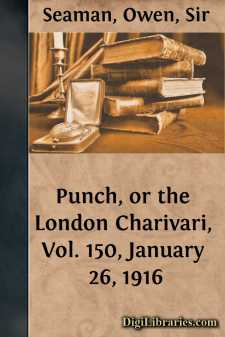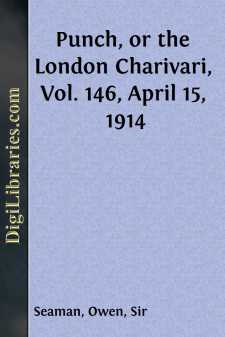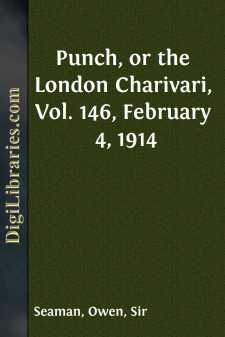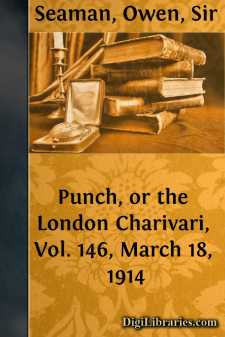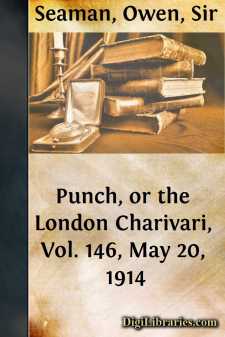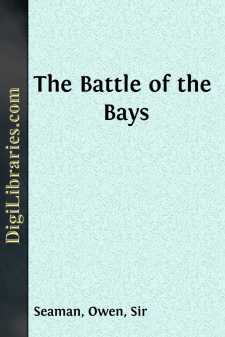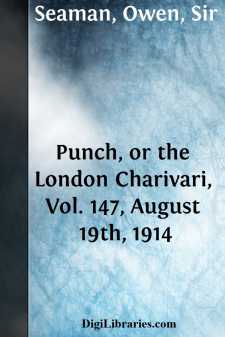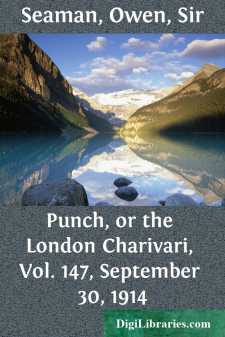Categories
- Antiques & Collectibles 13
- Architecture 36
- Art 48
- Bibles 22
- Biography & Autobiography 813
- Body, Mind & Spirit 142
- Business & Economics 28
- Children's Books 17
- Children's Fiction 14
- Computers 4
- Cooking 94
- Crafts & Hobbies 4
- Drama 346
- Education 46
- Family & Relationships 57
- Fiction 11829
- Games 19
- Gardening 17
- Health & Fitness 34
- History 1377
- House & Home 1
- Humor 147
- Juvenile Fiction 1873
- Juvenile Nonfiction 202
- Language Arts & Disciplines 88
- Law 16
- Literary Collections 686
- Literary Criticism 179
- Mathematics 13
- Medical 41
- Music 40
- Nature 179
- Non-Classifiable 1768
- Performing Arts 7
- Periodicals 1453
- Philosophy 64
- Photography 2
- Poetry 896
- Political Science 203
- Psychology 42
- Reference 154
- Religion 513
- Science 126
- Self-Help 84
- Social Science 81
- Sports & Recreation 34
- Study Aids 3
- Technology & Engineering 59
- Transportation 23
- Travel 463
- True Crime 29
Punch, or the London Charivari, Vol. 159, 1920-10-06
by: Owen Seaman
Categories:
Description:
Excerpt
THE MINERS' OPERA.
About a week ago, when they took Titterby away to the large red-brick establishment which he now adorns, certain papers which were left lying in his study passed into my hands, for I was almost his only friend. It had long been Titterby's belief that a great future lay before the librettist who should produce topical light operas on the Gilbert and Sullivan model, dealing with our present-day economic crises. The thing became an idée fixe, as the French say, or, as we lamely put it in English, a fixed idea. There can be no doubt that he was engaged in the terrible task of fitting the current coal dispute to fantastic verse when a brain-cell unhappily buckled, and he was found destroying the works of his grand piano with a coal-scoop.
Most of the MS. in my possession is blurred and undecipherable, full of erasures, random stage-directions and marginal notes, amongst which occasional passages such as the following "emerge" (as Mr. Smillie would say):—
"Secretary. The fellow is standing his ground,
He's as stubborn and stiff as a war-mule.
Minister. A
Means will be found
If we look all around
To arrive at a suitable formula.
Chorus. Yes, you've got to arrive at a formula."
Difficult though my task may be I feel it the duty of friendship to attempt to give the public some faint outline of this fascinating and curious work. Scenarios, dramatis personæ and choruses had evidently caused the author inordinate trouble, for at the top of one sheet I find:—
"ACT I.
Interior of a coal-mine. Groups of colliers with lanterns and picks (? tongs). Enter Chorus of female consumers."
Then follows this note:—
"Mem. Can one dance in coal-mine? Look up coal in 'Ency. Brit.' Also cellar flap;"
and later on, at the end of a passage which evidently described the dresses of the principal female characters introduced, we have the words:—
"Britannia. ? jumper, bobbed hair.
Anarchy. ? red tights."
Nothing in this Act survives in a legible form, but in Act II. we are slightly more fortunate:—
"Scene.—Downing Street (it begins). Enter mixed Chorus of private secretaries, female shorthand writers and representatives of the Press, followed by Sir Robert Horne, Mr. Robert Williams and Mr. Smillie."
What happens after this I can only roughly surmise, but most probably Mr. Smillie proves false to Britannia and flirts for some time with Anarchy, egged on by Mr. Williams and urged by Sir Robert Horne to return to his earlier flame. At any rate, after a little, the handwriting grows clearer, and I read:—
"Mr. Smillie (striking the pavement with his pick).
We mean to strike.
Chorus. "He means to strike, he means to strike,
Rash man! Did ever you hear the like
Of what he has just asserted?
Living is dear enough now, on my soul,
What will it be when we can't get coal?
Prime Minister (entering suddenly).
This strike must be averted."
There seems to have been some doubt as to how the Prime Minister's entrance should be effected, for at this point we get the marginal note: "?...




